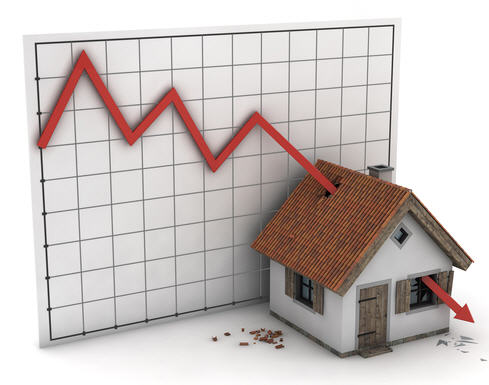
If marketed properly your property should sell at its best price in the least time possible. To maximize the chance of a speedy, satisfactory sale you should list your property with a good local agent and also on a website that will give you access to buyers in Ireland and overseas who would not normally check out your estate agent's window and website. Make sure your agent is a member of MyHome.ie if you wish to have your property listed on MyHome.ie. If your agent is not a MyHome.ie agent, then you could suggest that they contact us directly at property@myhome.ie and one of our staff will contact them.
- How long to leave your house on the market
- When to sell
- Avoid the selling pressure
- Sprucing up your property for viewing
- Choosing an agent
- Contracts
- Multiple agents?
- What will the agent do?
- Selling abroad
- Auctions
- What is the AMV?
- Selling without an agent
How long to leave it on the market
Deciding on the right price for your house is essential and your estate agent will advise on this. Also you could hire an independent appraiser such as a surveyor. If your house has been up for sale for more than a few months you should re-consider the price you are asking. Buyers become suspicious if a house lingers on the market for too long. You need to check comparable properties in your area and see if they are offering a similar price. If time is on your side you could ride it out another year and wait for prices to hike up again. But if you want to sell as soon as possible maybe put some money into the property? Landscape the garden, do an extensive paint job, get a new front door, buy a trendy Aga cooker - any money you put in you will get more back.
When to sell
The generally accepted optimum time for selling is spring and autumn, as the market slows down in late summer and over Christmas and New Year.
- The longer days and sunlight will show off your property at its best. Also if you have a garden it will be easier to emphasize the privacy that trees in full bloom can offer.
- If you think you can deal with the Christmas rush and the added stress of dealing with solicitors, mortgage brokers and estate agents, December could be a good time to sell as the prospect of moving into a new home by the New Year is alluring to many potential buyers.
Avoid the selling pressure
It's best to put your house up for sale before you decide to buy another one for practical reasons. It's a lot of pressure to put on yourself and you don't want to risk having to take less than you expected for the sake of a quick sale. If you do decide to buy before you sell, you could put in a conditional offer on selling your current home, however you cannot do this at an auction and with current high demand it might not work out for you. Banks do offer bridging loans but these can be pricey.
Sprucing up your property for viewing
You need to declutter, and depersonalize your home as much as you can. A buyer should be able to see how they can put their own stamp on a property and if you have 50 gnomes in the front garden this is going to impede their imagination. Home buyers are attracted to clean and spacious houses so get rid of superfluous furniture and scrub it from top to bottom.
Put a big effort into making sure the first impression of your house lasts. A well kept garden, a lick of paint and an installation of a power shower will not take up too much time but they could substantially hike up your asking price. Before a buyer steps into your house they will form an opinion. A newly-painted front door with shiny brass fittings always goes down well.
Finish off small DIY jobs, make sure there are no unsightly wires hanging around, replace dripping taps, broken tiles, fix all the lights, clear your drains. If your fitted kitchen looks weary replace it, or paint it and fit good solid worktops on to existing units. Revamp the bathroom with a big leafy plant, new taps, and a jazzy shower curtain. Anything you spend you should get back twice over. Don't cook a curry before they call, fill the house with fresh flowers, place a huge bowl of fruit on the table and offload Ben the Springer Spaniel and the three cats on to a friend or relative. Be careful about spending lots of money on furniture and decor - it's such a personal thing and it might not suit your next house.
Choosing an agent
Choosing an estate agent is easy with MyHome.ie. Simply go to the Estate Agent section of the site and you can find all the MyHome.ie member estate agents listed by location. To choose an estate agent personal recommendations are invaluable. Look around for sold signs and in the local papers. Look up the Independent Directory to find estate agents in your area and pick one which is a member of the Irish Auctioneers and Valuers Institute, or the Institute of Professional Auctioneers and Valuers.
- Go to the Estate Agent Search on MyHome.ie to find a full nationwide listing of all MyHome.ie member estate agents.
Contracts
Read the contract small print carefully, as you may find yourself signed up and legally bound for a long period of time. If this is the case, in the event of poor service, you will not be able to go elsewhere, unless of course you're prepared to fork out two fees. If you're not, insist on an agreement of a reasonable time period.
Multiple agents?
You want to get as many people as possible to know that your property is on the market. This could mean using internet estate agents or at least more than one agent. If you decide to use multiple agents, check the small print on their contracts. They may insist on 'sole agency', which means that even if you sell your home privately or through another agent, you'll still be charged a commission fee.
What will the agent do?
If you use an estate agent there is no doubt that you are making life easier for yourself as they will offer several benefits for e.g. advice on valuation which is not binding to the seller, arranging appointments for visits and screening potential buyers, property description details, corresponding with various solicitors etc. This service is not to be under estimated.
In the event that the property encourages keen interest at a particular price level, the selling agent may suggest a closed/private tender - i.e. invite a written or verbal bid on a "best and final offer" basis within a given timeframe.
The selling agent is duty bound to disclose a higher offer even if it has been received after acceptance of another offer. If a seller accepts a higher offer after verbally agreeing to sell their property to someone else, this is called gazumping. Most vendors will accept a higher offer unless they are contractually bound to proceed with the sale.
Selling abroad
One of the most important things is choosing a reputable estate agent.
- First of all check their accreditation - are they members of a professional body similar to the Institute of Auctioneers and Valuers? Sometimes large agencies can come across as impersonal, though they will obviously have a wider net of potential customers. A knowledgeable smaller agent with a low staff turnover could be a better bet.
- Regularly remind your agent you exist. Make yourself heard with a polite phone a couple of times a week to see how it is all going.
- Check that all debts are paid up on the property such as water, electricity, and mortgages. Spruce the property up like you would at home - i.e. fix all broken taps, give the place a lick of paint, make sure the garden looks at its best etc.
- Advertise in publications that you yourself would look in. If you have not sold your property within six weeks then change agent and look at alternative promotion methods.
- There will be capital tax issues in Ireland and abroad to consider so get advice from a qualified individual on tax liabilities and possible allowances before you do anything.
Auctions
Selling by auction can be a good deal because you get unconditional, cash buyers and you have a finite timeframe for selling. Although it can be stressful it puts you in control as you set the terms. Experience counts in this process and a vendor should look for an agent who specialises in auctions. It is important to check the agent's track record with auctions in your area - not just the number of properties sold, but the individual results and the prices achieved.
The seller receives feedback from the agent about how much interest there is and what price range to expect from the auction and the seller and agent set the reserve price (minimum they will sell for) just before the auction. This figure remains confidential to the vendor, agent and the auctioneer.
Once the reserve price has been reached in the auction, the auctioneer lets people know and says the house is now on the market. Then the pressure is on as the auctioneer encourages purchasers to bid competitively.
Once the property is sold, purchaser pays a 10% deposit on the auction day and settlement is normally in about 30 days time. If the property does not reach the reserve price, negotiations continue with those people who have indicated their interest.
What is the AMV?
The advised minimum value (AMV) is the auctioneer's true opinion of the value of a property when it is put on the market. However, the AMV has nothing to do with a reserve price (the price which the seller won't sell below) - and the seller still has the final say.
The AMV will also give an indication of the fees and VAT if the auctioneer is quoting percentage fees, therefore a reduced AMV will mean a reduced fee.
Selling without an agent
If you do decide to go it alone what is your game plan?
- First of all you need to price your home and the easiest way to do this is to hire an independent appraiser such as a surveyor.
- The next step is to advertise it in a place where it's going to be seen by potential buyers. Think about where you would look - what websites, and newspapers. Draw up a detailed and accurate description and mention everything that is likely to be a selling point in your home.
- Include a photo of your house, and your contact telephone number and take a week off work to field those calls! It's important to spend time on the wording of your ad, so get other people to read it and see does it entice.
- Once you have agreed a sale with a buyer, all the legal work is dealt with by your solicitor and your buyer's solicitor. However, some sales do crumble because the potential buyer doesn't have the necessary mortgage approval and there is not much you can do to make sure that potential buyers have financing. To minimize the risk of this, ask for a sizable deposit upfront to make sure they are serious and do what the agents do which is to go through the drill - are they a first time buyer? Are they selling another house? Is it sold yet? Are the contracts signed? Do they have mortgage approval in place already and for how much?
- Although more than 95% of people selling residential property in Ireland use an estate agent, with a similar situation in Britain, in many areas of Europe, and in New Zealand, millions of people handle the sale themselves saving yourself a big chunk of money, especially if you are moving to a more expensive house.
- That said, moving home can be one of the most stressful experiences in your life time so why not get an agent to do all the work for you. Your agent can include your property on MyHome.ie which is a one-stop-shop for all house hunters.
Contact your agent now to get your property listed on MyHome.ie!




